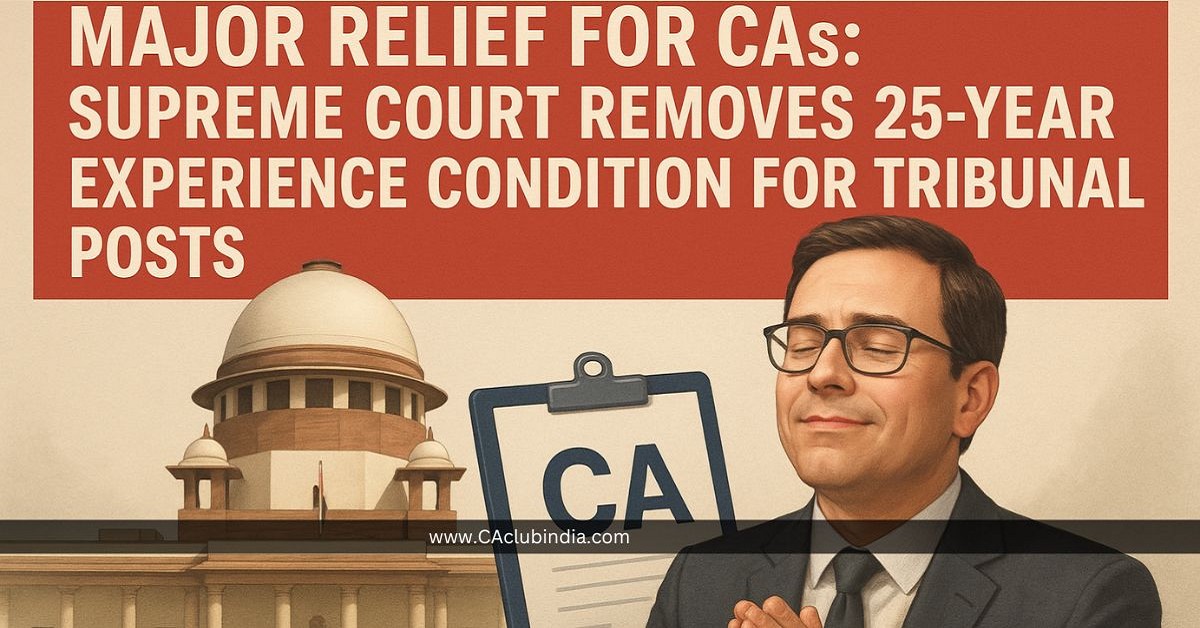The Supreme Court, in a major relief for the CA community, on Tuesday clarified that Chartered Accountants are not required to have a minimum of 25 years of experience to be considered for appointment as technical members in tribunals, including the Income Tax Appellate Tribunal (ITAT).
The clarification came from a Bench led by Chief Justice of India BR Gavai and Justice K. Vinod Chandran, following a mention by the counsel representing the Institute of Chartered Accountants of India (ICAI). The Bench issued this clarification in continuation of its November 19 judgment in the Madras Bar Association case, which had struck down several provisions of the Tribunal Reforms Act, 2021.

ICAI Seeks Parity With Advocates
During the hearing, the ICAI counsel pointed out that the Court had already struck down the condition requiring advocates to be at least 50 years old to be appointed as judicial members of tribunals. He argued that the same logic should apply to Chartered Accountants, since the 25-year experience rule effectively prevents CAs from qualifying before the age of 50.
Accepting the argument, the Bench observed:
"It is submitted that by such a requirement, a CA would be entitled to be considered only after he attains the age of 50 years. A similar case for lawyers having 25 years of practice has already been held invalid and unconstitutional by this Court."
Supreme Court Holds the Provision Unconstitutional
Agreeing with the submissions, the Supreme Court held that imposing a minimum 25 years of experience on CAs for appointments as technical members is arbitrary, discriminatory, and unconstitutional.
The Bench stated:
"If such a provision is held to be valid, it will permit CAs to enter service only after they attain the age of 50 years. We have already held that a similar provision may not be sustainable in the case of advocates. There should be no difficulty in applying the same analogy."
Accordingly, the Court declared that the experience requirement for CAs is unconstitutional and must not be enforced.
Direction to the Union Government
The Supreme Court also directed that the Union Government should keep this observation in mind when framing a new law for tribunal appointments in compliance with the Court's rulings.








 CAclubindia
CAclubindia
